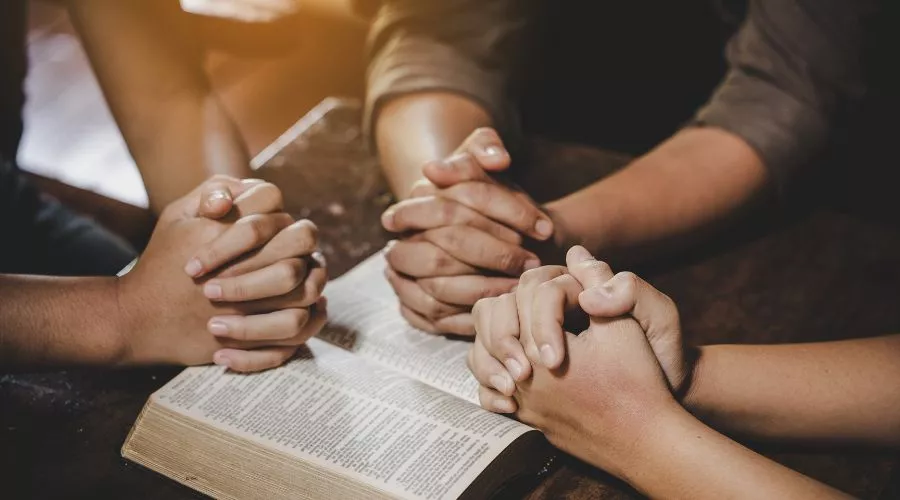The Wisdom of Finding God in Sobriety
Finding God in Sobriety: A Spiritual Journey

The journey to sobriety is a challenging one, but it can be the most rewarding path you ever take. For those who are struggling with addiction, finding your way out of the darkness and into the light can seem like an impossible task. But, at least for me, it is not just about quitting alcohol or drug abuse; true recovery involves physical, mental, and spiritual healing.
In this blog post, I will explore how spirituality plays a vital role in seeking a new life apart from alcohol and substances, both in my own experience and for many others who have traveled a similar path.
We will understand what challenges people face when getting sober without a program and share some personal experiences of encountering relapse. I will also look at how changing people, places, and things have helped many in their quest for recovery. Lastly, we will talk about how finding God can help in sobriety and whether it is meant to be a personal journey or not.
Join us as we dive deep into the spiritual aspect of recovery!
Understanding the Journey to Sobriety
Sobriety is a challenging path that requires unwavering commitment and perseverance. It is a journey of self-reflection and self-discovery, where individuals must confront their inner demons and confront the root causes of their addiction. During this healing process, the support of loved ones playsa crucial role in fostering hope, strength, and motivation. The journey to sobriety is not an easy one, but with determination and the right reasons, it becomes a transformative experience.
Embracing faith and spirituality, whether through Christian rehab or personal meditation, can also be a source of guidance and strength. By finding a sense of purpose and tapping into God’s power, individuals can embark on a better way of life, leaving behind the darkness of addiction and embracing the light of a sober existence.
The Challenge of Getting Sober Without a Program
Without the support of a structured program like the 12-step programs of AA or NA (or SMART Recovery or Celebrate Recovery) individuals face the challenge of falling back into old habits. The absence of support groups means a lack of accountability and encouragement, making it difficult to maintain sobriety. Moreover, without the tools and strategies provided by programs, the journey of getting sober becomes even more demanding.
It’s important for individuals navigating the healing process to find a sense of purpose and take the necessary steps toward recovery. Seeking help from treatment centers or Christian rehab programs can offer a better way to achieve mental health and find God’s power in the journey of overcoming substance abuse.
The Encounter with Relapse: A Personal Experience

Relapse, a common part of the recovery process for many individuals, is not a failure but an opportunity for growth. It serves as a reminder of the power of addiction and the need to stay vigilant. Instead of dwelling on the setback, it’s important to learn from the experience and use it as a stepping stone towards a better way of life.
Relapse does not mark the end of recovery but rather a new beginning, progress rather than perfection is our goal after all, and forms a chance to reassess and take the next step in the healing process.
The Role of Negative Influences in Relapse
Surrounding oneself with negative influences can significantly increase the risk of relapse during the recovery process. It is crucial to avoid triggers and temptations to maintain sobriety and continue on the path towards healing. Changing social circles may even be necessary for a successful recovery journey, as being around individuals who engage in negative behaviors can hinder progress.
By recognizing the impact of negative influences and taking steps to distance oneself from them, individuals can create a better environment for their recovery and reduce the likelihood of relapse.
A Second Chance at Recovery: The Path Chosen
Choosing to embark on the path of sobriety offers individuals a chance at a new lease on life. It is an opportunity to break free from the shackles of addiction and embrace sobriety wholeheartedly. By making the conscious decision to pursue a life of sobriety, one opens doors to a multitude of new possibilities.
It is about taking the next step in the healing process and finding a better way to live. Embracing this path is a testament to one’s strength and resilience. It is about finding God’s power within oneself and being part of a community that uplifts each other.
The Power of Changing People, Places, and Things
Changing one’s environment can play a crucial role in the recovery process. By removing oneself from triggering situations and negative influences, individuals can create a space conducive to healing and growth. It is important to replace unhealthy habits with healthier ones as part of the recovery journey.
Building a strong support network is another essential component of recovery. Connecting with like-minded individuals who understand the challenges of sobriety can provide encouragement and accountability. Embracing change in people, places, and things can lead to a successful journey to getting clean and sober.
Finding God in Sobriety: A Spiritual Awakening

Finding solace and healing in sobriety is a profound journey of spiritual awakening. As individuals navigate the challenges of recovery, they often find a sense of purpose and a connection with a higher power. Embracing spirituality becomes an integral part of the healing process, offering strength, guidance, and a deep sense of peace. It is through this spiritual growth that individuals discover a better way of living, free from the grip of substance abuse.
Whether through Christian rehab programs, meditation, or the study of the Bible (for me this is particularly compelling) finding God in sobriety becomes a source of hope and transformation.
How Does Celebrate Recovery Contribute to Spiritual Growth?
Celebrate Recovery plays a significant role in spiritual growth by offering a unique approach to addiction recovery. Through step studies and meetings, individuals can deepen their relationship with God, finding solace and strength in their faith.
Celebrate Recovery is a valuable tool for those seeking both sobriety and spiritual enlightenment and for whom Christian and Gospel-based support is sought.
Is Recovery Meant to be a Personal Journey?

Recovery is a deeply personal journey, unique to each individual. While everyone’s experience differs, it’s important to remember that no one has to face it alone. Connecting with others who have gone through similar struggles can provide comfort, understanding, and a sense of community.
For many, finding God in sobriety is a spiritual awakening that provides strength and guidance throughout the journey. Programs like Celebrate Recovery can play a significant role in this spiritual growth and provide a supportive community of individuals who can relate to the struggles and triumphs of sobriety.
I hope sharing a bit about my path to a life filled with God and without drugs and alcohol has proved inspirational to you as well!
Ultimately, whether recovery is a personal or communal journey, the most important thing is finding what works best for you and embracing the path to a healthier and more fulfilling life. And our resources from SOBRLIFE are always here to help support those seeking a better way to live. So stay tuned here, and don’t forget to share your journey on social media to inspire and encourage others who may be on a similar path!
FAQs on Finding God in Sobriety
Can finding a higher power help in maintaining sobriety long-term?
Many individuals in recovery attribute their long-term sobriety to the discovery of a higher power or experiencing a spiritual awakening. By finding a connection to something greater than themselves, they find strength, guidance, and purpose in their journey toward lasting
